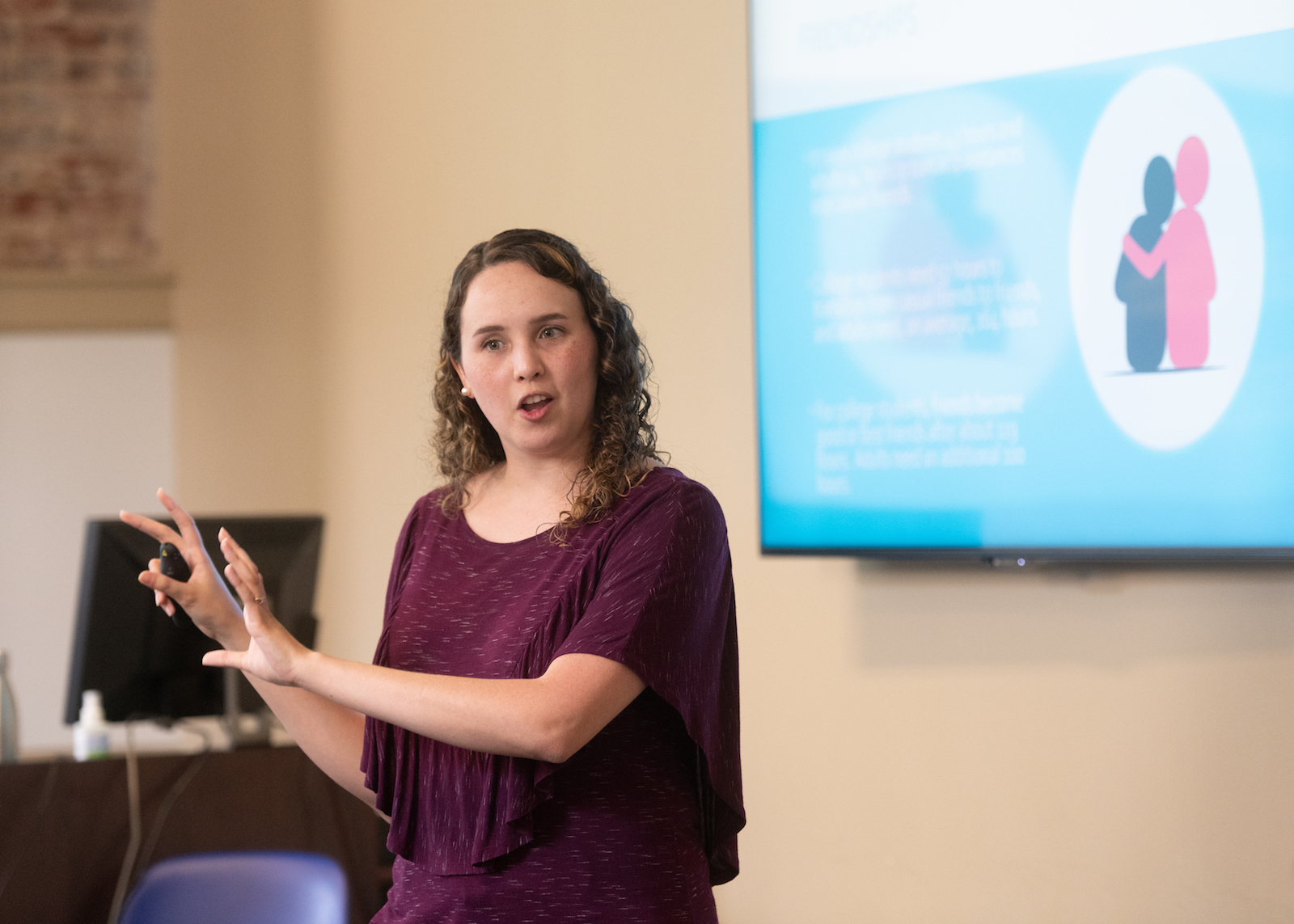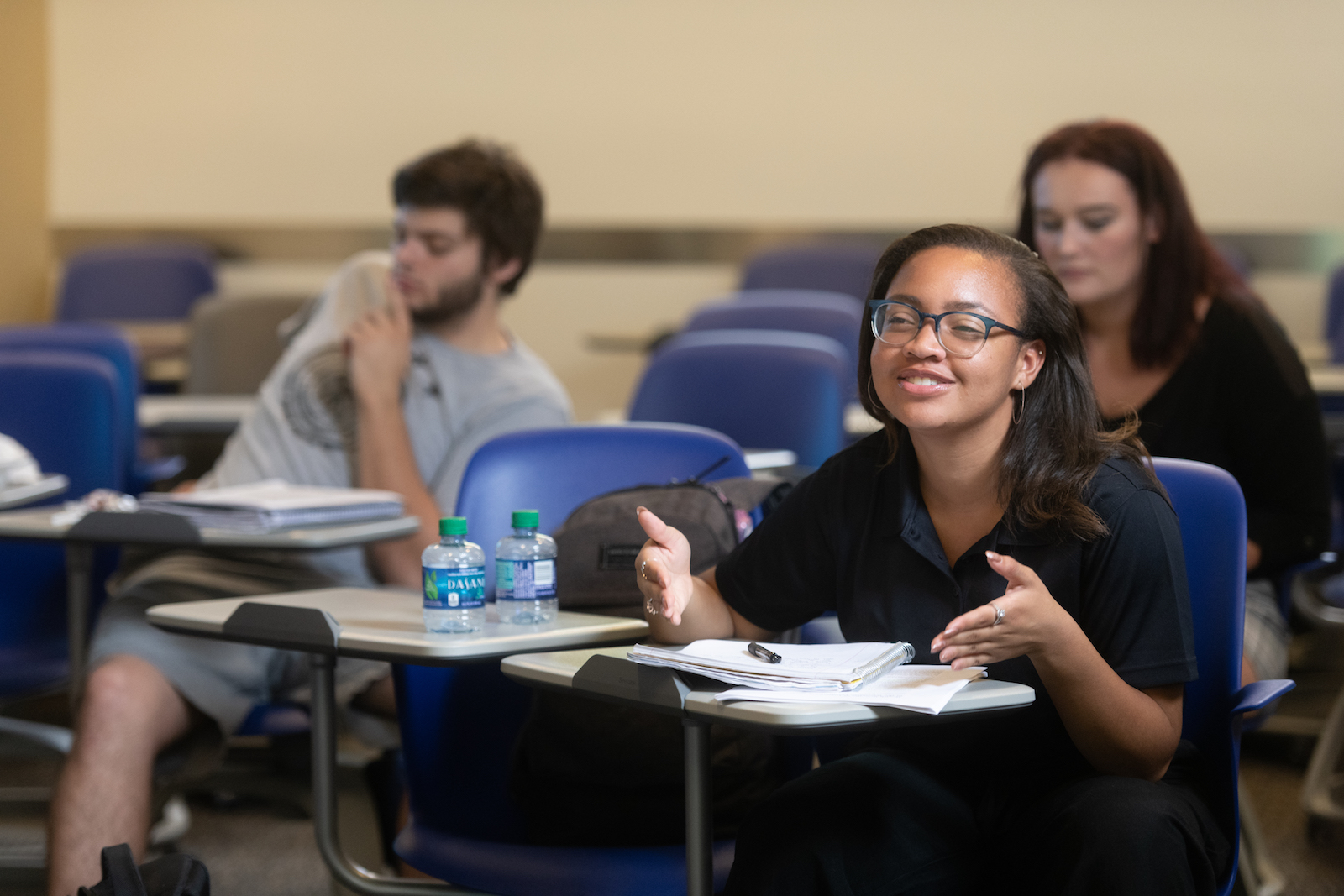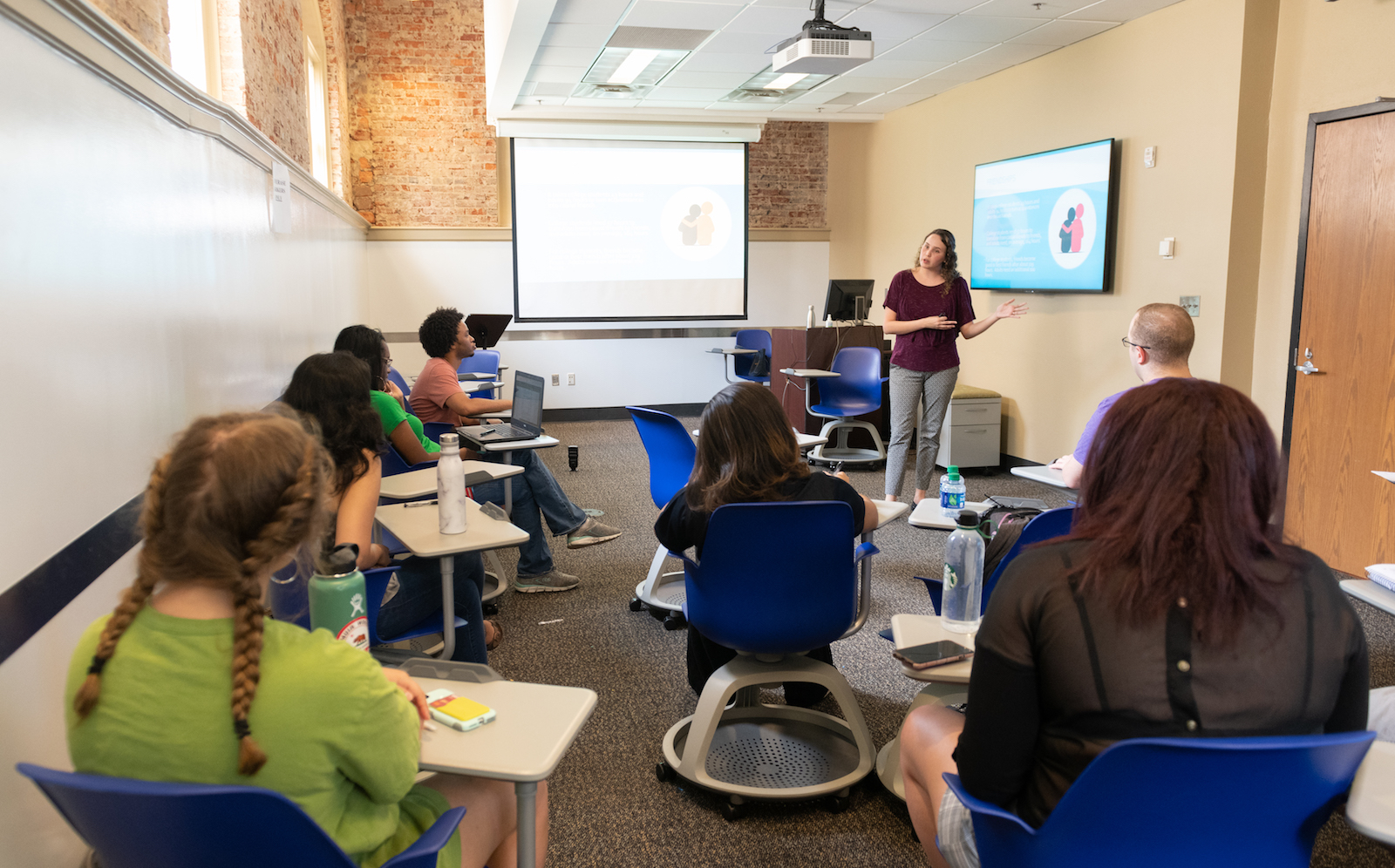EDITOR'S NOTE: This story by Victor Rogers was published originally on July 19, 2019, in the Georgia Tech News Center. It has been slightly revised for the College of Sciences' website.
A couple of Georgia Tech courses are in pursuit of happiness. The newest course was inspired by a New York Times story in spring 2018 about Yale University’s most popular class — a class on happiness.
“After reading the article I thought, ‘This is something our school needs,’” said Irene Daboin, coordinator of Georgia Tech Counseling Center’s Peer Coaching Program and the instructor for PSYC 2803: Psychology and the Pursuit of Happiness. “Working in the Counseling Center, I get to see first-hand the things that students are struggling with and the stress on campus.”
Daboin had been looking for a way to promote a healthy campus culture through a wider lens. So, she talked to John Stein, vice president of Student Life and the Brandt-Fritz Dean of Students, who had read the same article and was also thinking about a happiness course at Tech. He suggested that Daboin collaborate with the School of Psychology to figure out how to make it work.
“It took us a little while,” Daboin said, referring to a couple of failed attempts to offer the class. “We were hoping for a certain number of students to enroll and didn’t get enough. This year we decided to focus less on the number of students, and instead just get the class going.”
The class, offered for the first time this summer, has 10 students.
“It’s a very intimate class, which is great,” said Daboin, who has a Ph.D. in clinical and community psychology from Georgia State University and is a licensed psychologist. “It lends itself to discussion and a more in-depth way of talking about issues and applying it on a personal level. The class is sort of our pilot to see if this is something the students like and if we can do it on a larger scale in fall and spring.”
The class is designed to teach students scientifically-validated strategies for living a healthier, happier, and more satisfying life at Georgia Tech and beyond. Students explore psychological concepts related to mental health and well-being and learn to apply the concepts to better manage their own stress and improve their habits, which will lead to more fulfilling lives.
The class begins and ends by measuring the students’ happiness. It also measures the students’ psychological wealth, including their satisfaction with life and their emotional wellbeing. Students also must envision their best possible self, identify their personal strengths and values, do acts of kindness, and keep a gratitude journal.
Daboin wants students who have taken the class to become wellness ambassadors by sharing strategies they have learned, and promoting a healthier campus culture.
“It’s exciting to see students immediately connecting the lessons learned in class to their personal lives,” said Daboin, who thought she would have to sell the class every step of the way.
“But it’s hitting home,” she said. “If these students can walk out of this class leading healthier lives and their psychological well-being improves, then hopefully it will be a little contagious.”
More Happiness
Chris Martin, a postdoctoral fellow in the Wallace H. Coulter Department of Biomedical Engineering, taught a happiness course at Emory University and brought it with him to Tech in 2018.
He teaches BME 2803 Special Topics: Happiness. The class was created by Emory sociology professor Corey Keyes, and Martin taught it for three sessions while earning a Ph.D. in sociology at Emory. Martin taught the course at Tech last fall and spring, and his third session will be this fall.
The class covers three big themes: maximizing pleasure and minimizing pain; the meaning of life; and coping with suffering.
The course explores various theories of happiness, such as how money does or does not help one’s level of happiness.
“In the modern world, we have too many choices and that tends to inhibit happiness,” he said. “Making the choice is burdensome. You think about all of the things you didn’t choose. And, you feel like you lost out on all of the things you didn’t choose because of what you chose.”
Martin said there is an underlying idea that one’s circumstances are the result of their choices. And part of a person’s level of happiness is tied to expectations.
“Happiness can sometimes be elusive because we think a possession or purchase will make us happy for months, but it only makes us happy for a few days,” he said. “This is called the hedonic treadmill; you experience some pleasure and some pain, but you end up pretty much in the same place.”
The two things that seem to help sustain happiness are variety and appreciation. If there is variety in what you purchase, that will help. Also, take time to consciously appreciate what you bought.
“Otherwise, once you purchase something ‘nice’ your aspiration level goes up,” Martin said. “So, you have to keep purchasing things that are significantly more expensive than the last thing you purchased, which is impossible.”
This fall, there will be two sections of Martin’s happiness course: a regular section and one for the Honors Program. The regular class is housed in BME but is open to all undergraduates. Most students who take the class are engineering majors who have an interest in the humanities. About 25 students usually enroll.
The curriculum covers a discussion of happiness, the hedonic treadmill and if it is realistic (for the students) to increase happiness, and students’ idea of a good relationship. The final paper is on what they have learned from the class and also what they have learned about life overall. The class also talks about character strengths, careers, and relationships.
“The students enjoy having discussions,” Martin said. “The assignments are reflections, so I get to know each student’s unique personality. I get to hear stories about their lives, and it’s quite an honor.”
NOTE: Students may register for BME 2803 Special Topics: Happiness. Students interested in PSYC 2803: Psychology and the Pursuit of Happiness should check the course catalog to see if the course will be offered this fall.
For More Information Contact
Victor Rogers
Institute Communications





